In pictures: Dirty Vegas' London studio
We find out how the duo's studio has adapted to their niche sound
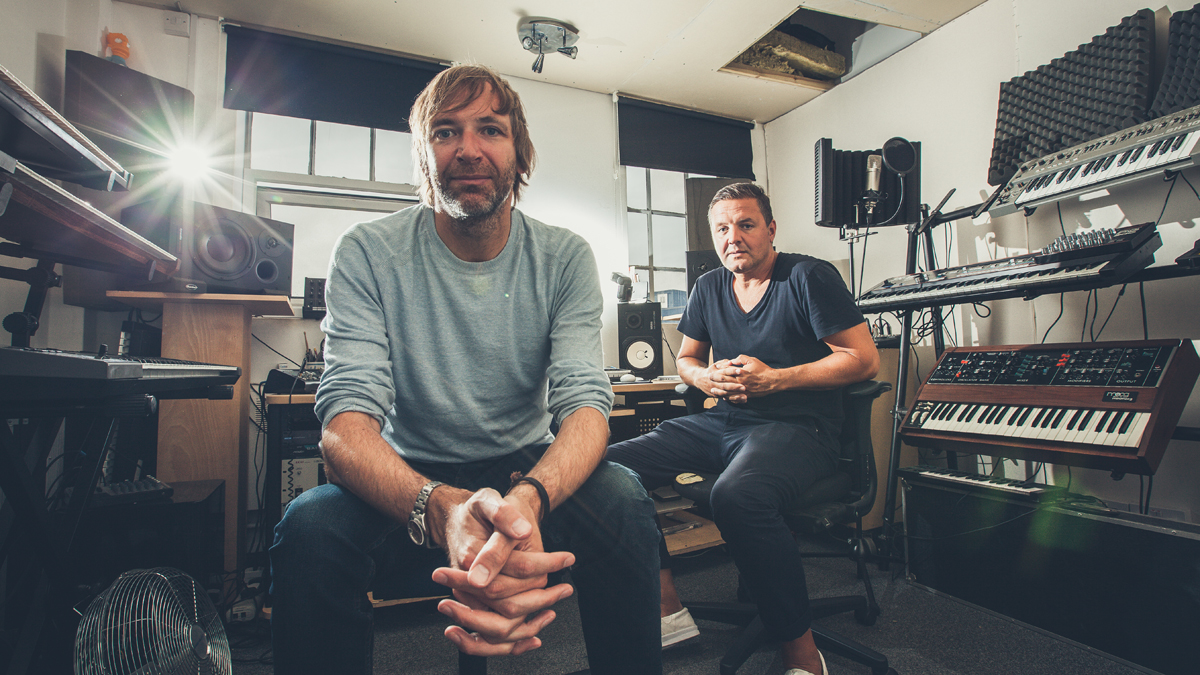
Intro
Dirty Vegas took America by storm in 2002 when their UK single Days Go By was licensed for a Mitsubishi Eclipse commercial. Exposure spread from television to radio, the single hit the number one spot in the US dance chart and the trio received a Grammy award for Best Dance Recording the following year.
Several album releases later, the group have slimmed down to a two-piece - Steve Smith and Paul Harris - and find themselves in demand on the international DJ circuit. With their fourth studio album just out, their life-affirming blend of acoustics and electronics stands apart from the occasionally self-absorbed club scene, harking back to an era where songwriting was king.
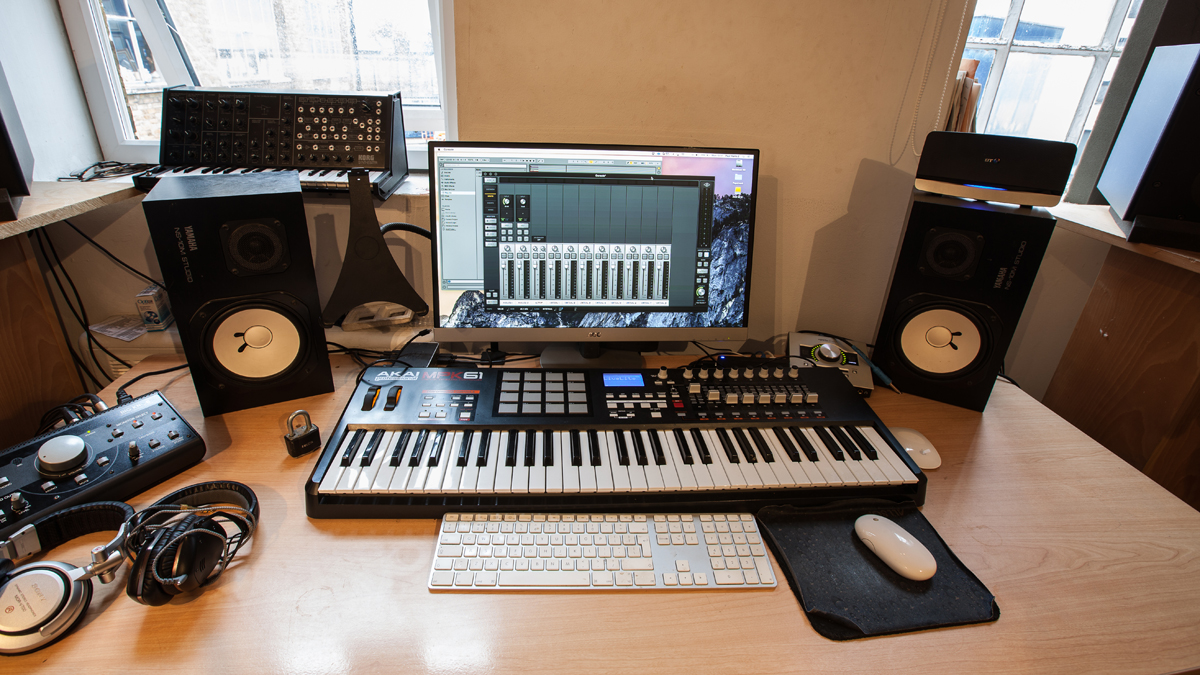
Influences
Dirty Vegas have a clear acoustic/electronic blend, but where did your influences come from on the electronic side?
Steve Smith: "We were always fans of 90s house, and obviously in the 80s there was synthpop, which was all classic verse-bridge-chorus songs. Even though we were massive fans of The Chemical Brothers and Underworld, it was all very masculine and we wanted to appeal to the softer side of it.
"I started as a live musician and came from an acoustic background; Paul is very much from the electronic side; and, former member, Ben [Harris] was busy in the middle, being a DJ and producer."
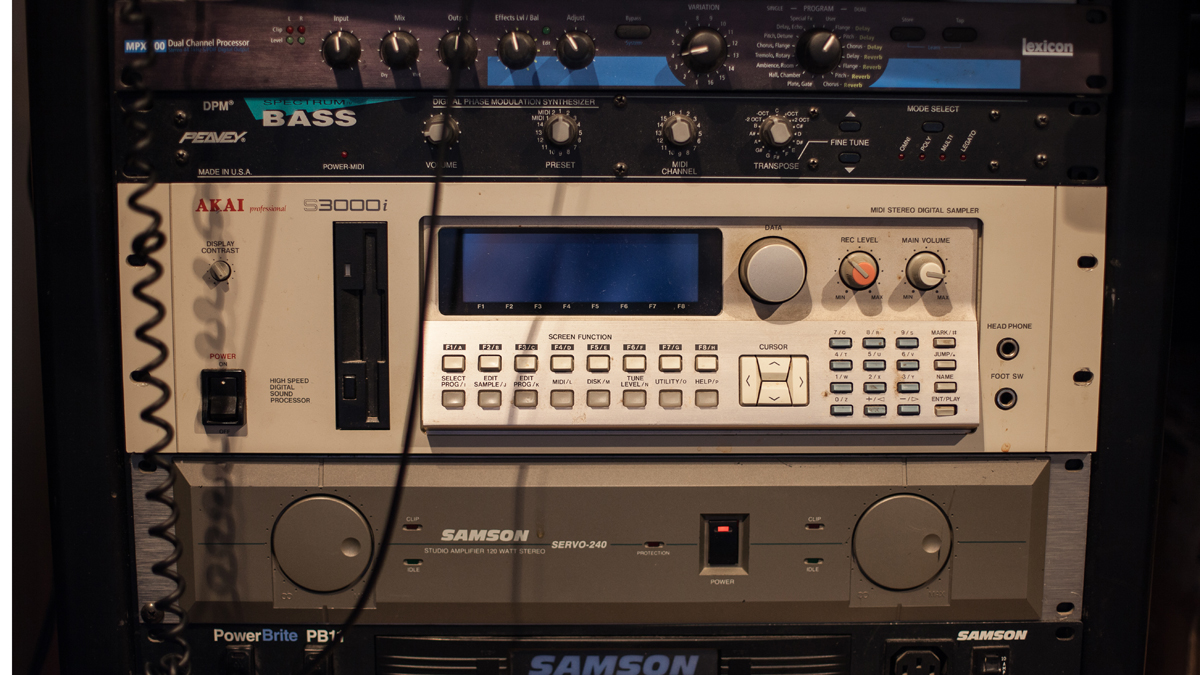
Breaking America
Why do you think you have been embraced more in America?
SS: "It was a huge piece of luck. We got going in the UK, recorded an album and, as you do, released a single, but it didn't really do much. People forget that the one that broke it for us [Days Go By] in the States had already been released here. There was a lot of respect from DJs and the Dance community, so off we went to play some festivals and by a stroke of luck we got a license request from Mitsubishi for a commercial.
"Strangely enough, the song connected due to America's love for TV and started to get requested on local FM stations. Then it got on the daytime format and exploded from there. Because we weren't purely DJs and went over there with a band setup and someone in front of the mic acting as lead singer, that American love of bands and rock music connected."
Did that open your eyes to the power of music licensing?
SS: "It was the first license that we'd ever done, and because the song had come and gone we were advised by our label and management to do it. Our lawyer in the States said that the commission for that song is a benchmark case, because people like Sting or Dire Straits - the big giants - had done that before, but it was the first time a completely unknown band had gone from obscurity to winning a Grammy.
"Now, the number one format for breaking your music is the license. But then the backlash started, because everyone in England told us we'd sold out [laughs]."
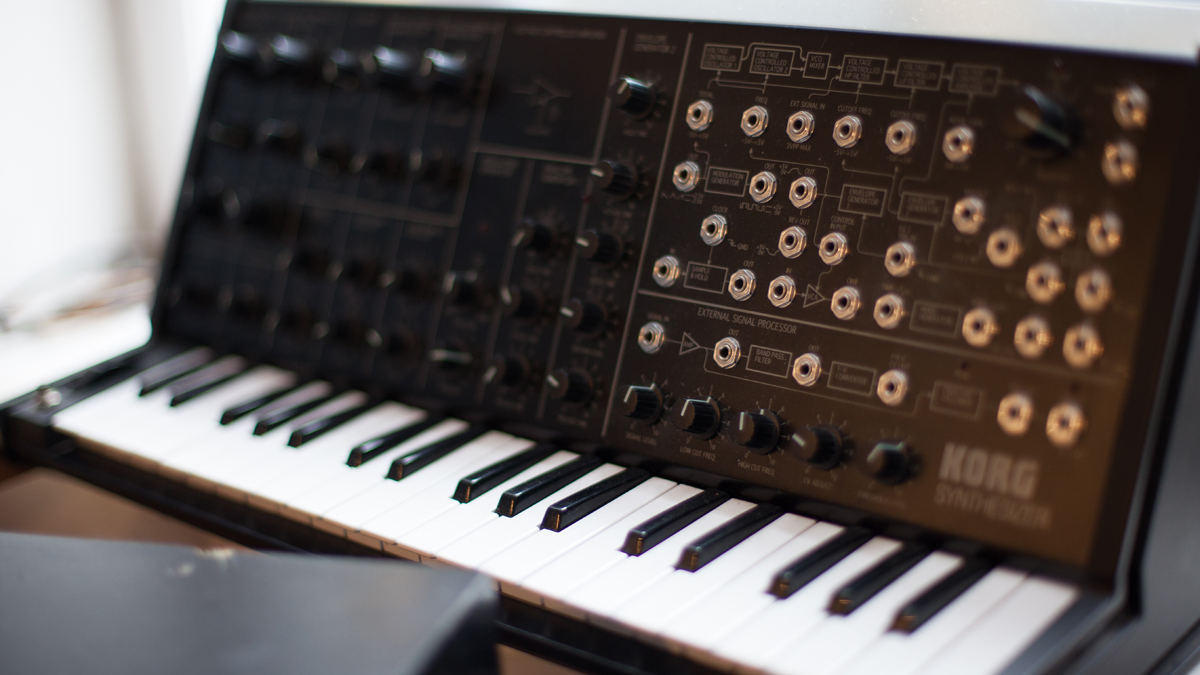
Sound and style
In terms of your own sound and style, what was your approach to the new album Photograph?
SS: "Our inspiration has always been electronic music; that's how we came together, because of our love for it, and that will always be the start point. Even if we're picking up a guitar, we know there will be a 909 underneath it or some groove that Paul sent me three months ago. Because we've been around a long time, there's a lot to draw inspiration from.
"The songs are based on personal experiences and observations… I mean we're bloody lucky to still be doing this. Yesterday, we were on a beach in Sardinia and the show was fantastic. To be doing this for so long gives us a lot to draw from."
Paul Harris: "The majority of the tracks were written acoustically on this one and produced afterwards. There were probably seven versions of each, so the process could be classed as remixing your own records. We did a couple of sessions in LA with an old friend of ours, Karl Ryden.
"A few songs were electronic-based tracks and others were literally Steve playing an acoustic guitar to a kick drum. Songs usually start from a loop or a chord sequence, but there's no method to the madness. Once the song's written, you're halfway there."
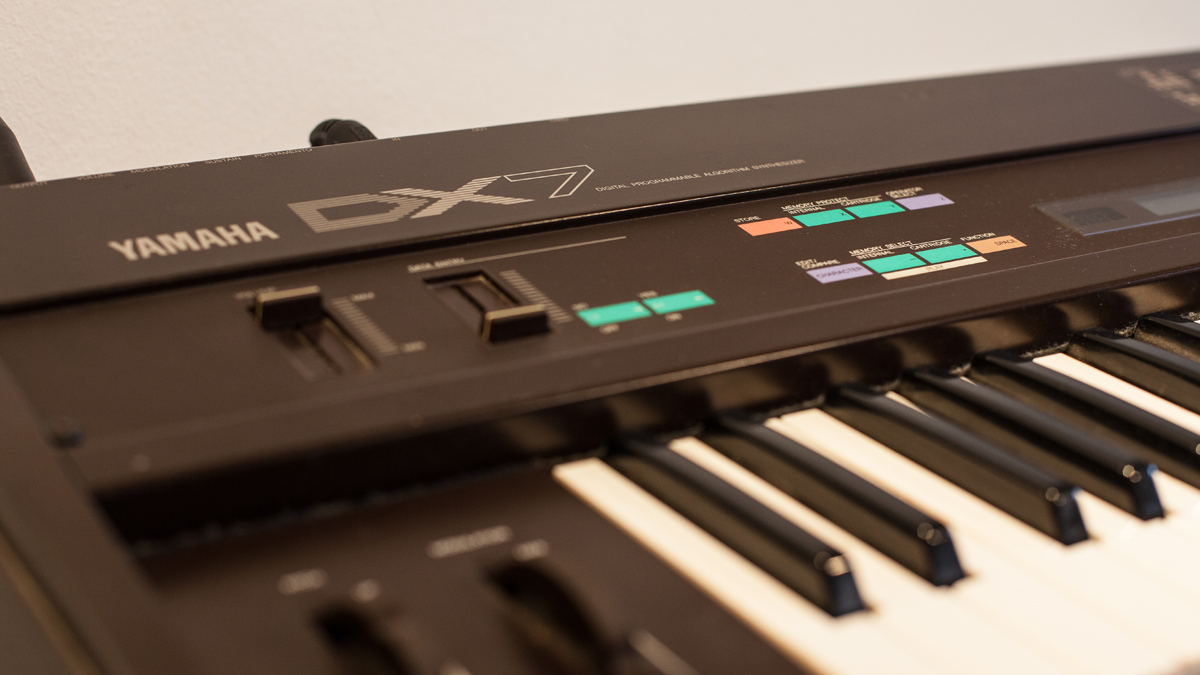
Wild boys
Why choose to cover the classic Duran Duran track Save a Prayer?
SS: "Last November, we did some shows in Abu Dhabi, came back to England and had some writing time. Everyone was starting to get into Christmas, so we thought we'd make a track to give away and thank everybody for their support; we got a groove going and I started singing Save a Prayer.
"We're massive fans of the song and Duran Duran, but when we played it to our label they said, 'You can't give this away, it's fantastic!". Then we got the official seal of approval from the band."
PH: "From that whole era, we love Human League, Depeche Mode, Cocteau Twins, and Thompson Twins - all the twins [laughs]. My music collection is vast; I'm very much into pop music from all genres and eras. Even Stock, Aitken and Waterman stuff."
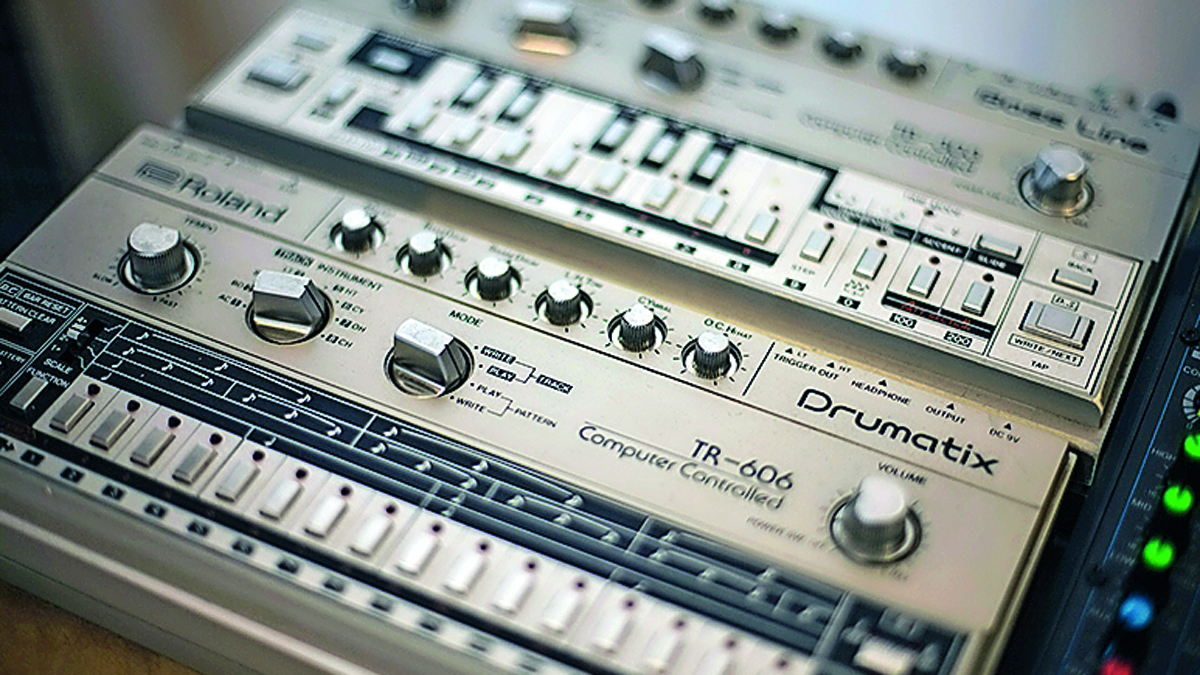
Yesteryear
It sounds like you have a shared nostalgia for those days?
SS: "There are no secrets anymore. Punk was born in a couple of clubs and the new romantics, too. I watched Soul Boys of the Western World - it's about Spandau Ballet. Their early stuff was absolutely incredible; I'd have loved to have been standing there listening to that at the time. We're all fans of classing songwriting.
"I think it was Marvin Gaye who said, 'When the electricity's gone, what do all these guys do?'. So as much as we absolutely love Strings of Life or the new George Fitzgerald record, it's always songs that give you the goose bumps."
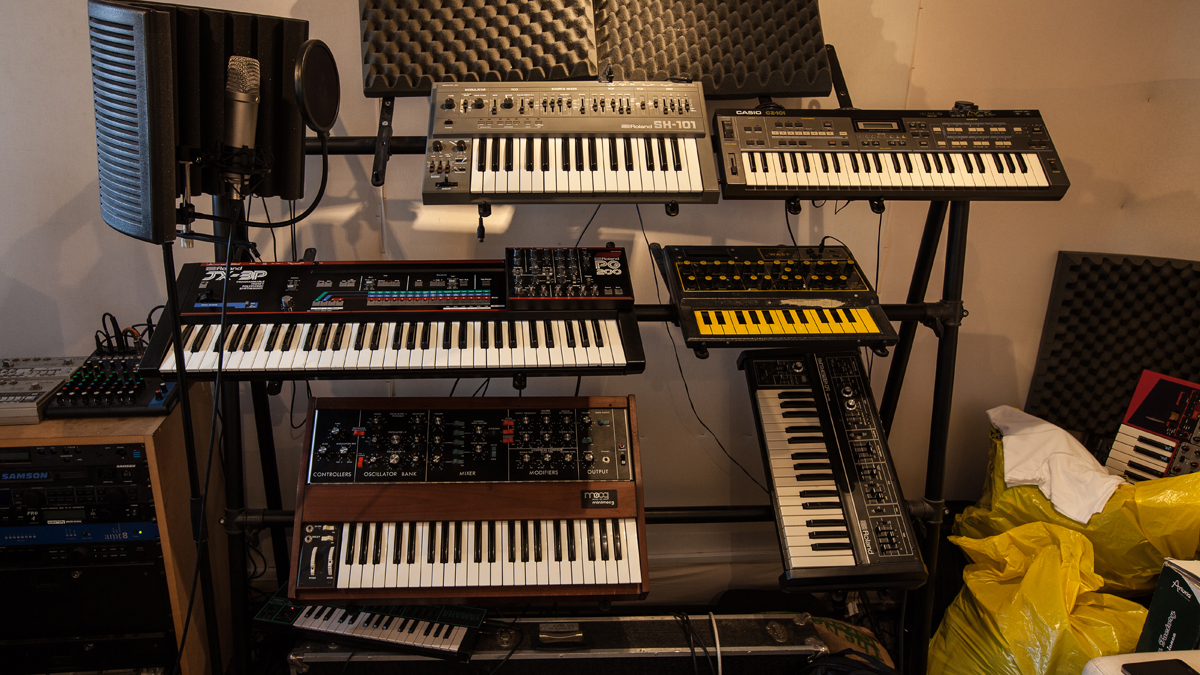
Analogue quirks
What do the hardware synths afford you that the software doesn't?
PH: "They've got character, haven't they? They breathe, they've got the warmth. They don't sound in tune, but then every time you hit the note on a soft synth it sounds the same.
"When you turn on the Moog or other analogue synths, sometimes they don't want to work so you have to tune them all. All the delays can be a bit wonky, but they've got tuning knobs on them so we just use a screwdriver - not that I understand the process.
"If it sounds right to your ears then it's right - you just turn it on, check the oscillators, cutoffs and the resonance, and off you go; but you can't replicate the bass sounds on the Moog with a plugin."
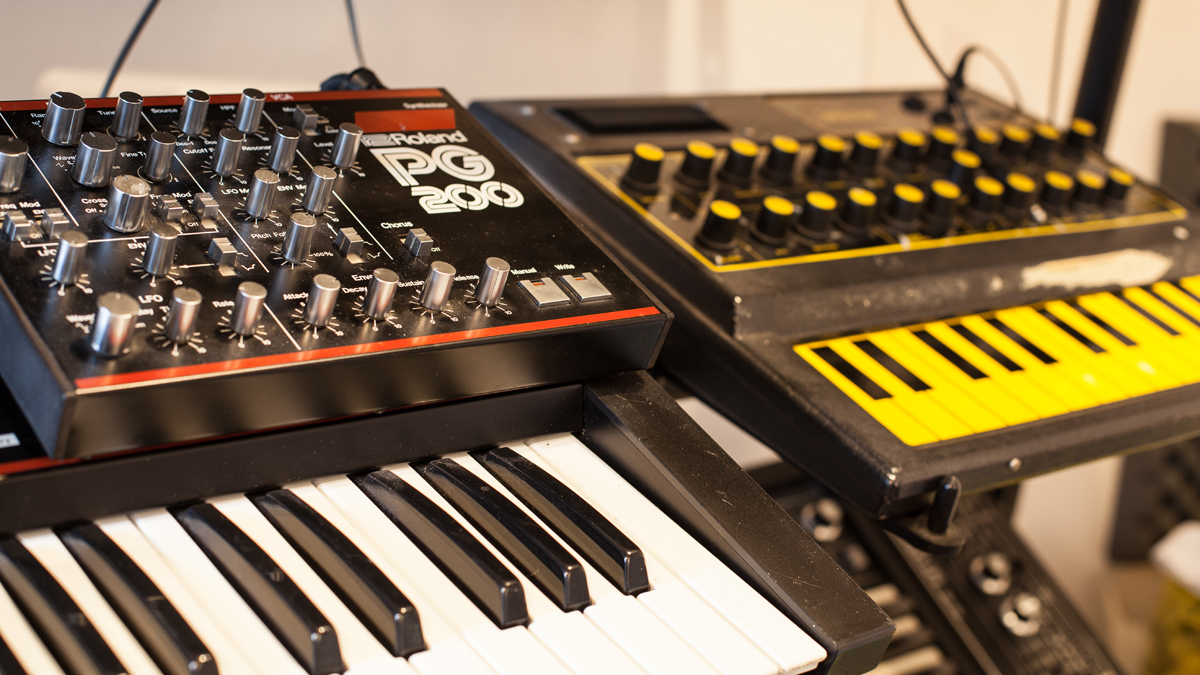
Favourite gear
Which ones do you go to first when you want to create a sound or mood?
PH: "The Moog is one of the best synths ever made. We've had it for at least ten years; it's been to the shop and back a few times but still has the most solid sound. The Roland SH-101 looks a bit knackered, but for bottom-end sub it's a real beast.
"We've got a really cheap Casio CS01-11, which may only be 8-bit but it's got some superb sounds. Synths don't have to cost you thousands of pounds; you can go and buy something for £100 as long as it can create a vibe. We've got a 303 as well, which is your original acid machine; I used to program it and I've got a bit lazy, but every studio needs one."
What other hardware? We see you have a PG-200 controller; what does that come in handy for?
PH: "That's a programmer for the Roland JX-3P synth. It allows you to program the keyboard; without that you wouldn't be able to. We've got this Electronic Dream Plant Wasp synth too, which is not cheap but looks cheap. It's like a stylophone-type machine that makes really distorted, crunchy sounds - it's quite interesting for percussion touch sounds.
"I guess my favourites are the Roland JD-800, which has got great strings that have been used in every dance record known to man, and the Roland Juno-60. I wouldn't mind a Jupiter, but I can't really afford it - it's an £8K piece of kit."
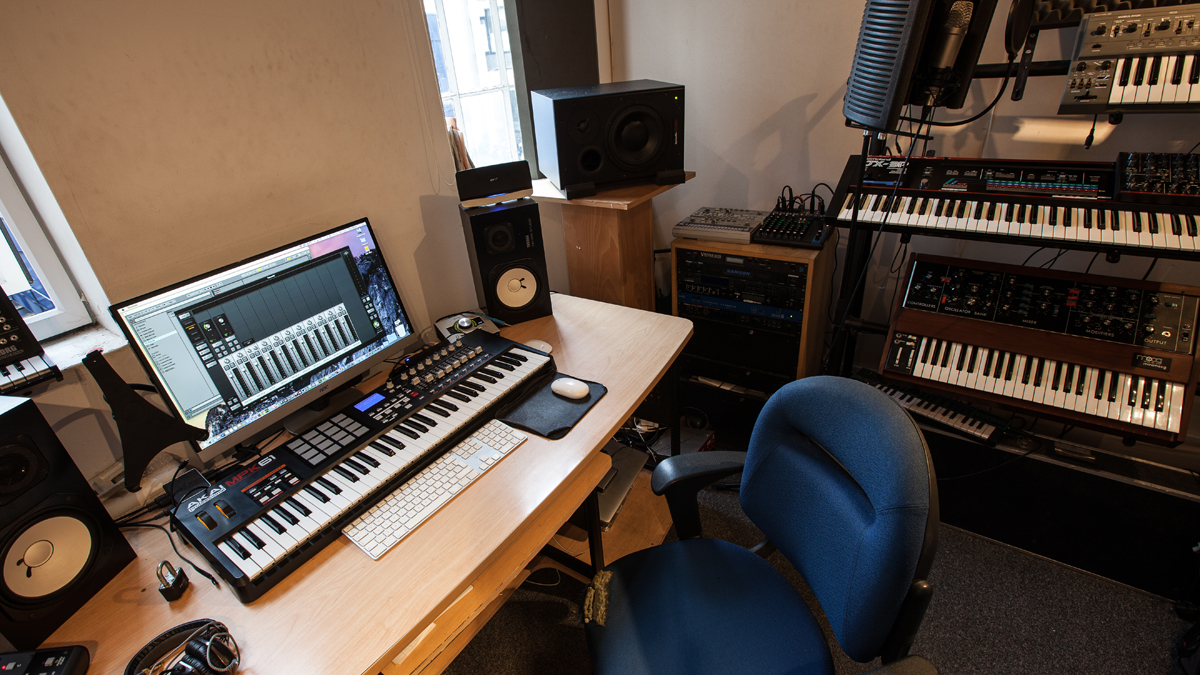
In the beginning
Talk us through your software journey.
PH: "I started getting into software when I was about 15. I just always played around with stuff, and we were avid gamers as well. When I first started, it was with the Amiga - that far back; then I moved to using the Atari ST. I never used its Notator software sequencer, because when Cubase came out on the Atari it was a game changer.
"Some people still swear to this day that the Atari ST running Cubase is the tightest thing ever. But when the second version of Logic came out for the Mac, that was it for me, and I haven't really changed except for going from bits of Logic into Ableton just for the ease, simplicity and speed of it. I think Ableton's the best for ideas, but on Logic I still think the MIDI is better. They're the two workhorses in the studio."
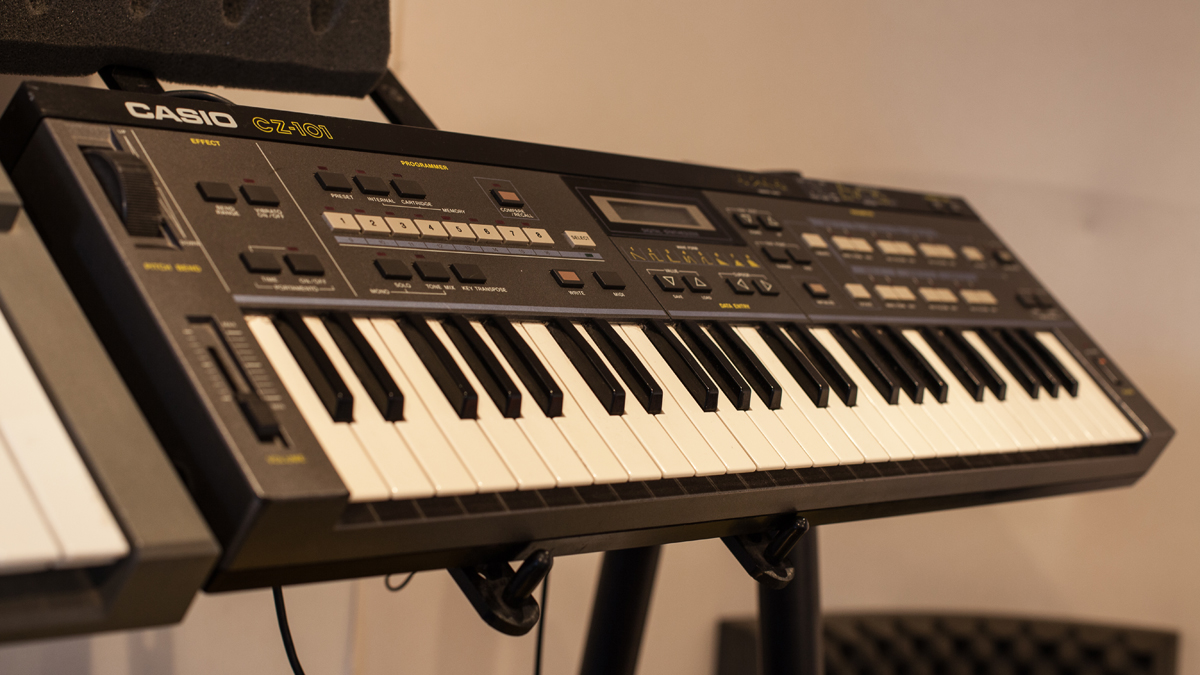
The in sounds
What about soft synths, plugins and VSTi's - it sounds like you know your way around those?
PH: "No longer Sylenth [laughs] - that's been overused. It was the go-to for sure. Reveal Sound's Spire synthesiser is good - it's got incredible sounds and a lot of weight and depth. A lot of people are making great packs for it. I'm not one for going into a synth and programming it; I'd rather get something and tailor it.
"Other than that, I'll use Logic's EXS24, which has got lots of sounds that I've collected over the years. Some of the packs that people use are great - the Loopmaster stuff and Vengeance sample packs. I know they're a bit tired and used, but the sounds are great if you twist them a little bit. The idea is not to make it easy on yourself, but if you hear a sound that you know works, use that sound."
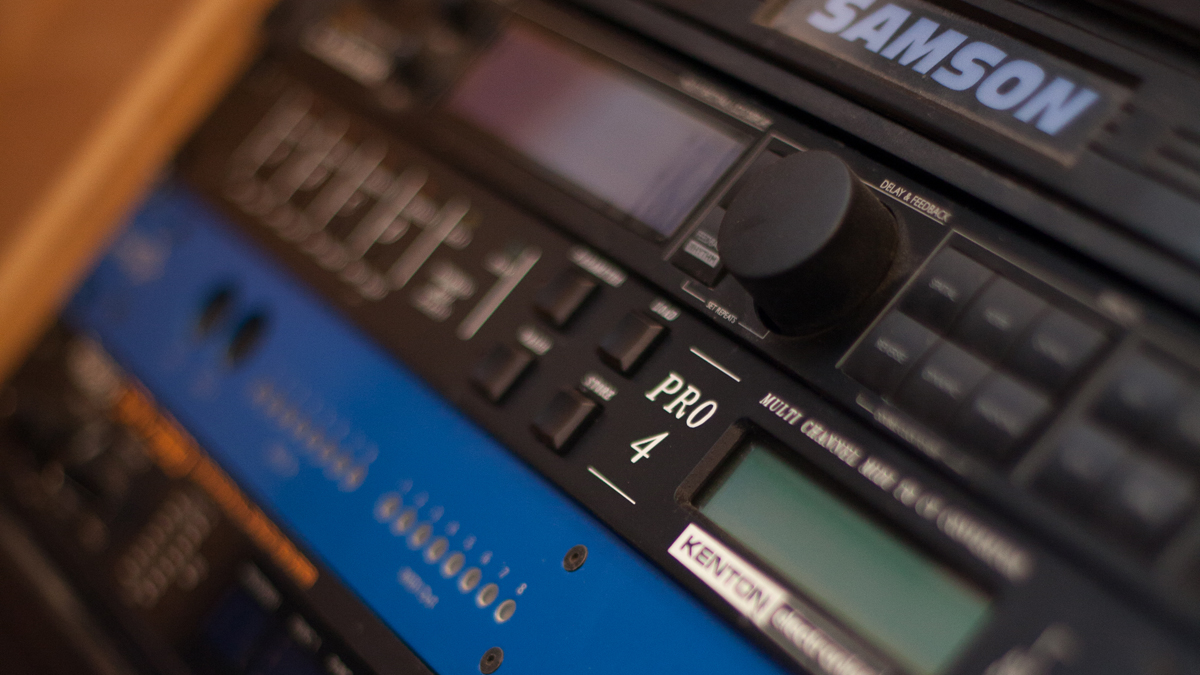
Best DAW for the job
Which DAW suits dance music best?
PH: "It depends - other studios we work in usually run either Logic or Ableton, but I think Ableton's still seen as a dance tool. You don't see bigger studios running Ableton; I think they're still mainly using Logic and Pro Tools. But Ableton's easy, quick and intuitive, and obviously you have the warp function and you're able to change tempos, whereas Logic lacks that flexibility.
"I still use Logic 9 - it's just the familiarity. I like the way the audio moves and the windows… the way you can just drag it and drop it; and I like the MIDI inside of Logic. I occasionally use 10 but it looks a bit like GarageBand, so I'm not a massive fan of that."
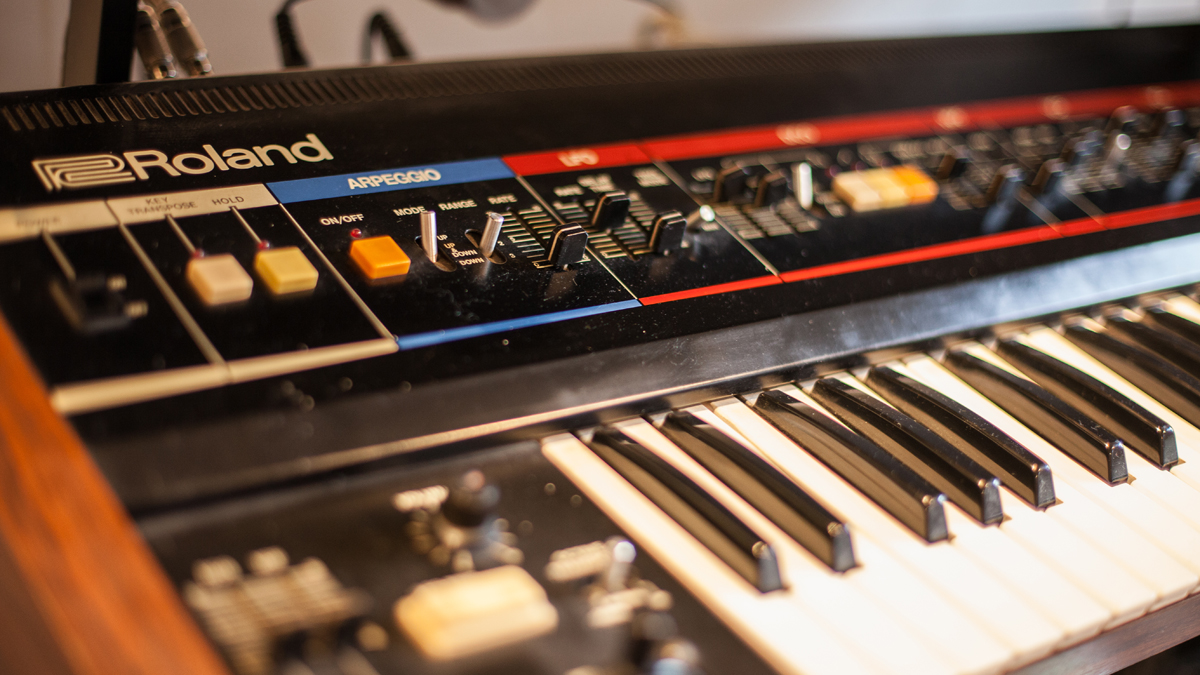
Evolution
How do you think dance music has evolved since you started?
SS: "It feels like it's come full circle at the moment. We were just saying the other day how you're hearing Korg M1 pianos again in tracks. Everything tends to go in cycles anyway, but I think it's more open now and stuff is more accepted.
"Because of social media, everyone's got an opinion and can share their thoughts, as opposed to sitting in studios and referencing stuff. Creatively it's the same, but obviously things can be made a lot quicker now."
PH: "The main thing is that it's cheaper. You can now have a £200 laptop or PC running FruityLoops and make a record. When we started, you needed a lot of equipment. A studio would cost you £1,500 a day and you'd need an engineer and a mixer, so a record would cost you a couple of grand.
"DJing has changed a lot, too; you'd go to a shop and there might be 100 records released and you'd fight over those, but now Beatport is listing 30-40,000 tracks a week. There's far too much music out there and too much good stuff gets missed, too. You could sit there all day looking at SoundCloud and YouTube and find millions of artists you've never heard of. Some of it's incredible, but you don't find out about it."

How times have changed
What's your opinion on today's dance music culture - the pros and cons of that scene?
PH: "I guess you can start by taking the biggest one out there, Calvin Harris. He's an incredible producer and songwriter, so why shouldn't he get the success he gets? Dance music has been massive in England and around the world for years, but once America embraced dance music culture, that was it - they termed it EDM, it caught fire and they created monsters.
"There's no reason why it shouldn't have happened; footballers 20 or 30 years ago were making £5K a week and now they're making £250K a week. It's not an ADHD generation - the fans want a chorus, a hit - but on the other side of the fence, if you go and see Carl Cox and Nic Fanciulli, they'll take you on a journey.
"It's the same as it's ever been, but now it's on a much bigger scale - from 200 people watching a DJ at a club to a quarter of a million watching one at Knebworth."
SS: "My only criticism of where it is now is that, when we used to go out, we wanted discovery. I didn't wanna know what Danny Tenaglia was going to play before I walked in a club. Now it sometimes feels like the crowd that's crept in are like sulking children if they don't get the hits.
"If they don't know the track that you're playing, the dancefloor drops. The idea should be that DJs play something new the audience will like, as opposed to them simply waiting until you drop some bootleg of Major Lazer."
PH: "You can't win either way. If you're a 20-year-old kid and you went to see Calvin Harris and he didn't play his hits, you'd feel cheated."
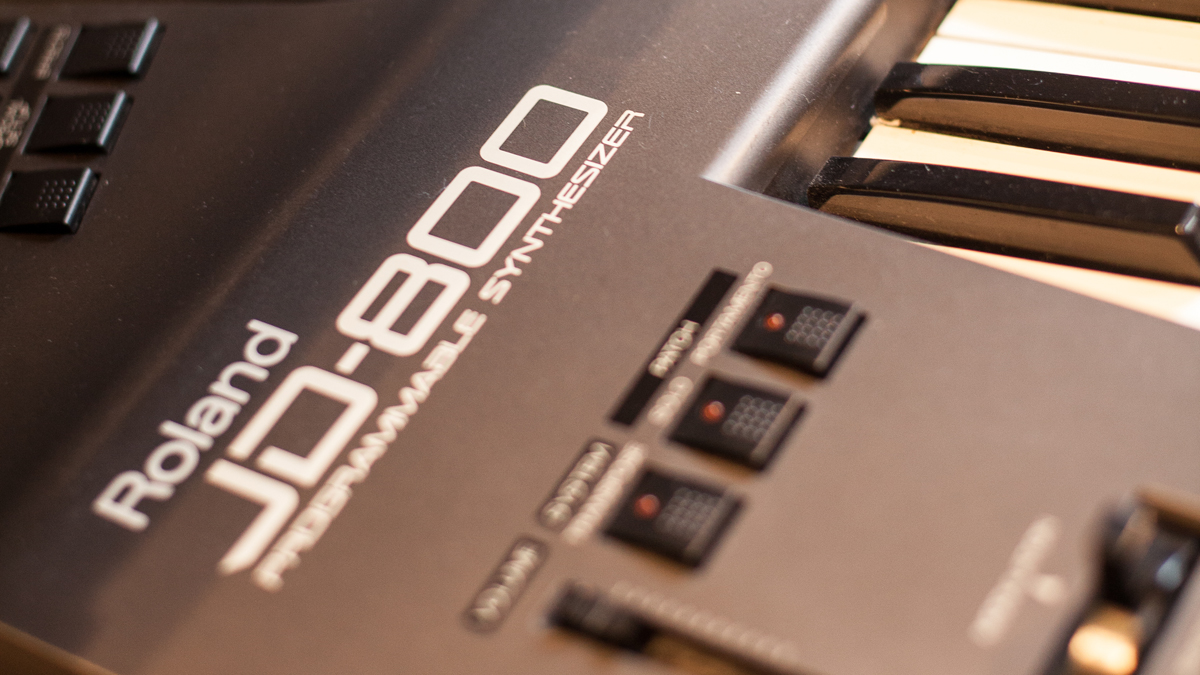
The live setup
Does your live show differ to your DJ sets?
SS: "We've been doing this for a long time. Sometimes we'd get a remix back of one of our tracks and we'd love it, so we'd ask the producer or DJ to send us some of the parts and build that into a version that is pretty unique and play it live, and we still do that to this day. King Unique did a remix of Walk Into The Sun that blew us away, so we asked for all the parts."
What technology are you using for live sets?
PH: "When we're playing live, it will be Ableton running some stems, soft synths and samples and Steve will be on stage playing acoustic guitar, electric guitar and vocals, and we'll have a drummer. For DJ gigs, it varies. Initially, we'd play MP3s using Timecode, and that changed everything, because instead of carrying boxes of records you could use software; but now it's all USBs, rekordbox and Pioneer CDJ2000s.
"If we've got to go somewhere for a long time, we'll use Serato, because I've never really been a fan of Traktor. I love the way it looks and sounds but we prefer to use Serato with vinyl, because we're not scratch DJs, we're party DJs."
But you always bring your own equipment?
SS: "When we first started touring and going to other countries, we'd send ahead the rider, get there and start opening up keyboard cases, and go, 'that's not a Nord'. One time, when I asked for a set of congas, I opened up the box and it was two drum kit toms. They said, 'You wanted drums', and we were like, 'Yeah, but not any old drums!'.
"But that's a lot better now; your agent can send ahead your backline list and there's a very strong chance it will be exactly what you asked for; but we'll still take guitars, some keyboards and certain drums on the plane with us."
That sounds quite expensive…
SS: "In the old days we'd need a bus, a tour manager, a tech guy and session musicians - so the costs became huge. If you ask any band that's not Coldplay or Kasabian, the financial pressures are hard as the freight costs are getting extortionate. Everyone's minimised their touring personnel, and equipment is now being made with that in mind."
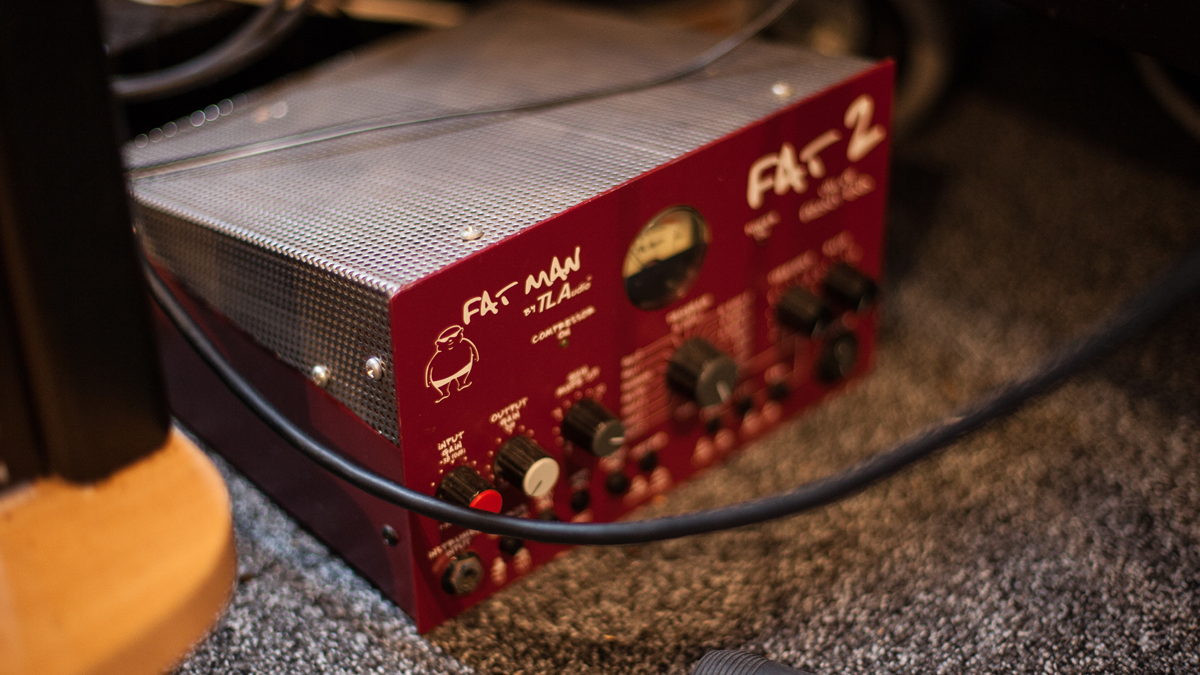
For the love of DJing
Is DJing something you do to earn money or because you love to do it?
SS: "We still love doing a DJ set. I usually have to drag Paul off the decks at 5:30 in the morning, because the club wants to close. There are people out there who are hired for two hours and they're looking at their watches, but we don't do that, ever."
PH: "If you're playing a festival, you've got to have an idea within that hour what you're going to play, but now I'll turn up and wing it until they take me off."
SS: "I wasn't a DJ before I joined the band, but, to a certain extent, I've become one and love it. There's a certain excitement to doing a DJ set that is the same as a live show, although we're rarely asked to just do a DJ set; we came from that thing where you're signed to a major label and got asked to do the Roskilde festival or Glastonbury."
New LP Photograph is out now on D:Vision. For the latest news, release info and DJ dates head to the Dirty Vegas website.
Future Music is the number one magazine for today's producers. Packed with technique and technology we'll help you make great new music. All-access artist interviews, in-depth gear reviews, essential production tutorials and much more. Every marvellous monthly edition features reliable reviews of the latest and greatest hardware and software technology and techniques, unparalleled advice, in-depth interviews, sensational free samples and so much more to improve the experience and outcome of your music-making.


